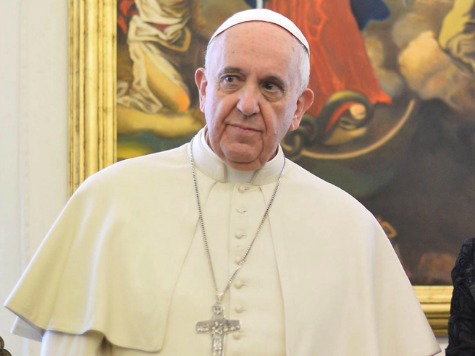Pope Francis has identified what he called “the sins of the media,” narrowing them down to three: “disinformation, slander, and defamation.” Of these, he said, “the most insidious is disinformation,” which he compared to telling half-truths.
“Of these three sins–disinformation, slander, and defamation–slander seems to be the most insidious,” Francis said. “But in communication, the most insidious is disinformation” because “it leads to error,” he said. “It leads you to believe only part of the truth.”
Disinformation means saying only “half of the facts, and this leads to not being able to make an accurate judgment on reality,” he said.
The Pope spoke these words on Monday to a group of management and staff from a Catholic television station called TV 2000, gathered in Paul VI Hall inside Vatican City.
Francis has experienced the effects of disinformation firsthand. Earlier this year, the Pew Research Center published a report on the media coverage of Francis’ first year as pope and revealed that he was one of the top newsmakers in the entire world, ahead of celebrities such as Hillary Clinton, Vladimir Putin, and David Cameron. Unfortunately, much of the coverage has been sloppy, misleading, or erroneous.
One news source has devoted an 1,100-word column to documenting the monthly errors that have plagued media coverage of the Pope during this past year, calling the piece “2014: The Year in Pope Francis Misunderstandings–How the Media Got it Wrong, Constantly.”
Even Time magazine has had to recognize the colossal media blunders in papal coverage. “Don’t believe most of what you read about the Vatican,” a recent Time essay urged. “Papal coverage has gone wild.”
In recent weeks, Francis has twice complained of media reporting on the Vatican marriage summit held in October, saying that it made the synod look like a sporting event. The Pope said that much of the unrest generated by the synod came from people getting their information from “some news in a newspaper, or an article,” rather than reading what the synod actually said. Francis also said that people’s fears and confusion during the synod were more the result of faulty information than of the meeting itself.
The most-recent papal media debacle was the fictional story of Francis consoling a boy whose dog had just died, assuring him that he would meet his pet again in heaven, to which the New York Times added two additional factual errors.
If disinformation is the media’s capital sin, maybe it’s time for sackcloth and ashes.
Follow Thomas D. Williams on Twitter @tdwilliamsrome.

COMMENTS
Please let us know if you're having issues with commenting.